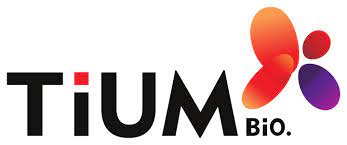TiumBio said it will begin phase 1a clinical trials for TU7710, a new bypassing agent for hemophilia A and B, after the Ministry of Food and Drug Safety approved its investigational new drug application on Monday.

TiumBio expects that the drug will improve patient convenience by reducing the number of doses, as it has a significantly increased half-life compared to existing treatments.
Hemophilia is a congenital bleeding disorder caused by the absence or deficiency of blood clotting factors.
There are 12 known blood clotting factors -- hemophilia A is caused by a deficiency of factor VIII, hemophilia B is caused by a deficiency of factor IX, and hemophilia C is caused by a deficiency of factor XI.
According to the government's recent estimate, approximately 80 percent of Korean hemophilia patients have hemophilia A, and 15-20 percent, hemophilia B.
The standard treatment for hemophilia is replacement treatment, which is to replace the missing blood clotting factor so that the blood can clot properly.
However, about 20 percent of patients develop autoantibodies to conventional clotting factor concentrates.
A treatment developed in response is bypassing agents.
Instead of replacing the deficient clotting factors, these therapies bypass or pass through the clotting factors blocked by autoantibodies, allowing the body to form normal blood clots.
Commercially available bypassing agents for hemophilia include Takeda's Feiba and Obizur, and Novo Nordisk's NovoSeven.
However, most of these drugs have a half-life of two to three hours, so they must be administered continuously.
TU7710 is a novel hemophilia bypassing candidate that overcomes these drawbacks, the company said.
The drug is derived from TiumBio's transferrin, which is an iron-binding glycoprotein. The company uses fusion gene recombination technology to increase the drug's half-life up to three times compared to existing drugs, TiumBio said.
The phase 1a clinical trial will evaluate the safety, tolerability, pharmacokinetics, and activity of intravenous TU7710 after pre-treatment with warfarin anticoagulation in 40 healthy adult males. The study will be conducted at Seoul National University Hospital.
TiumBio expects the trial to end in July 2024.
Related articles
- Regulator OKs Takeda Korea’s acquired hemophilia A treatment
- Hemlibra’s insurance benefits likely to expand to non-antibody hemophilia patients
- 'Better reimbursement criteria needed for hemophilia prevention, maintenance therapy’
- TiumBio unveils key updates on endometriosis, immunotherapy, hemophilia pipelines

